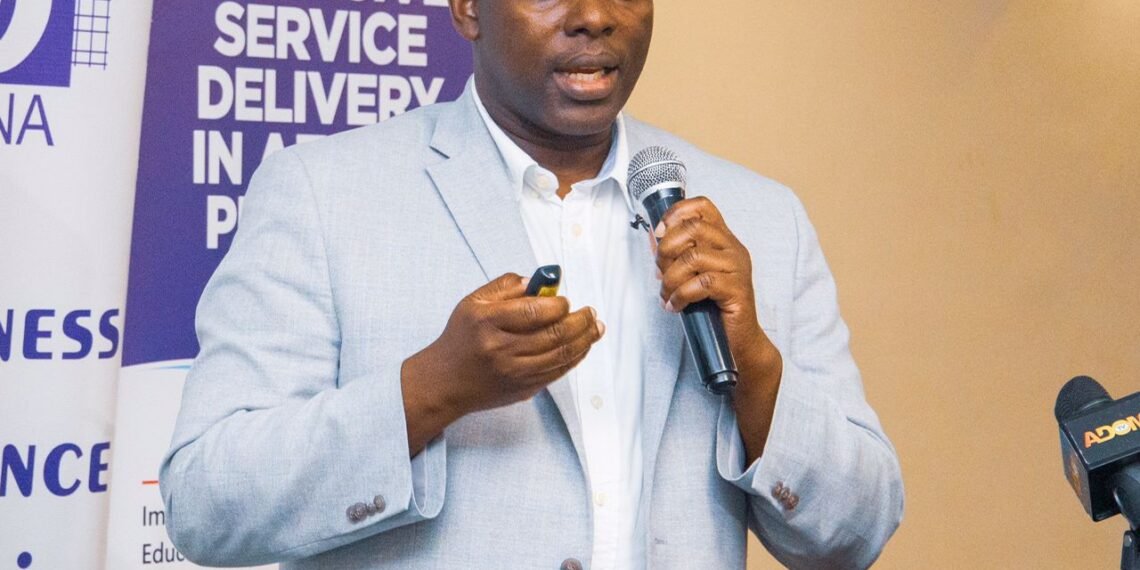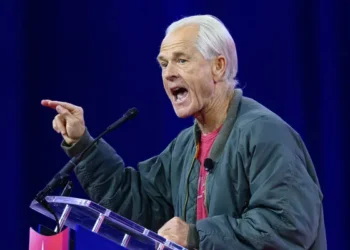A Democracy and Development Fellow at the Ghana Center for Democratic Development (CDD-Ghana) and respected political scientist, Dr. John Osae Kwapong, has urged the New Patriotic Party (NPP) to take bolder steps beyond its recently announced amnesty for dismissed and suspended members if it hopes to heal divisions and regain political ground ahead of the 2028 elections.
Speaking in an interview on the party’s decision, Dr. Kwapong questioned whether the gesture of forgiveness alone could be sufficient to unify a party that is still grappling with the aftermath of its 2024 electoral defeat.
He stressed that while amnesty may appear to be a pragmatic move, true reconciliation will require collective ownership of the defeat, deeper reflection on public sentiment, and concrete steps to rebuild trust with Ghanaians.
“I’m not sure amnesty provides an incentive for people to be indisciplined. As Dr. Kennedy said, probably the party has sat down and realized that based upon the exigencies of the time and whatever it is that they are confronting, one of the things that the party has been regularly harping on since their 2024 defeat is party unity. It takes a lot more than just amnesty to forge party unity and reposition for the next election.”
Dr. John Osae Kwapong
He cautioned against framing the decision as a blank cheque for misbehavior, noting that unity cannot be sustained by declarations alone. “I hope that doesn’t become the unintended consequence of this,” he added.

Dr. Kwapong underscored that the NPP must move past its instinct to assign blame for the 2024 loss. He explained that lingering over individual culpability risks undermining efforts to rebuild cohesion.
“There comes a point where the party has to collectively own the 2024 defeat. I’ve had conversations with some NPP friends who would say, ‘Well, we know why we lost and we know the people who caused our defeat.’
“And there’s some element of truth in that, but for how long are you going to litigate that narrative? Because then the more you keep pointing out it’s person A or it’s person B, I think it drags the process of finding a way to collectively move beyond what happened in 2024 and reposition yourself for 2028.”
Dr. John Osae Kwapong
Confronting Past Wrongs
Beyond internal reconciliation, Dr. Kwapong emphasized the need for the party to confront the perceptions of ordinary citizens about its style of governance.
According to him, Ghanaian voters had been left disillusioned by aspects of the immediate past NPP’s administration, and unless the party makes amends, it will struggle to win back confidence.
“They also have to reflect on what public sentiment was like with regards to the party, how it governs, some of the pinch points that it created for Ghanaians and how they make amends and reconcile with the Ghanaian people and even with some of their own voters”.
Dr. John Osae Kwapong
He cited the findings of exit polls conducted by researcher Mussa Danquah, which indicated that some NPP supporters stayed away from the polls in 2024 rather than cast a ballot for the opposition.
This, in his view, demonstrates the extent of disaffection within the party’s base. “That for me shows there’s a lot more that needs to be done to reposition the party if they want to be able to regain power in the next election,” he explained.

Timing of Amnesty
On the timing of the amnesty, Dr. Kwapong suggested that it fits into a broader calculation by the party’s leadership to resolve lingering disputes swiftly and create space for the next stage of its reorganization.
“If you put it within the context of how soon the party wants to have the presidential primaries, I have this feeling that there are a lot of things that the party wants to quickly get behind them and then do other forms of reconciliation as they move towards 2028.
“And so I suspect that this is all part of the process of, ‘Look, let’s try and put some things behind us and therefore if amnesty is what we also have to grant at this material moment, let’s do that and put all of the pieces together’”.
Dr. John Osae Kwapong
Dr. Kwapong dismissed the idea that the move intend to benefit certain factions within the party, particularly supporters of Kennedy Agyapong. He referred to suggestions that the acting national chairman, Mr. Duncan Smith Booty, who signed the amnesty letter, might be tilting the playing field in favor of one camp.
“Except that you also cannot guarantee who these former or past party executives are going to vote for. If you’re 100 percent sure that he being the acting chairman is doing this because he’s 100 percent sure that the affected persons are going to vote for a particular candidate, then you can begin to read meaning into why he’s taking this step.
“But since there’s no guarantee of who they are going to support, I think it would be very difficult then to say that there’s another motive beyond this idea of party unity that is driving the acting national chairman.”
Dr. John Osae Kwapong
He added that the amnesty was unlikely to be a unilateral decision, pointing out that the letter itself indicated it followed consultation within the party’s leadership. Overall, Dr. Kwapong insisted that the NPP cannot assume that forgiveness alone will secure loyalty or win over skeptical voters.

Instead, he argued, the party must go further to rebuild trust, demonstrate humility, and show responsiveness to the frustrations of both members and citizens at large. “It takes a lot more than amnesty to forge party unity,” he concluded.
As the NPP charts its course toward the 2028 elections, the call from voices like Dr. Kwapong’s suggests that gestures of reconciliation must be accompanied by deeper structural and cultural changes within the party. Without this, amnesty may heal some wounds but leave the deeper scars unaddressed.
READ ALSO: GUTA Pushes for Price Cuts as Cedi Stability Holds



















